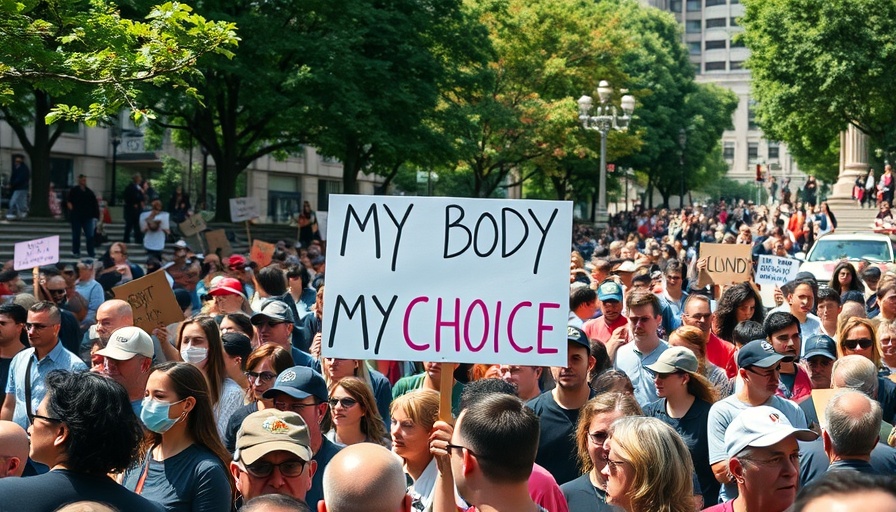
The Implications of Texas' First Abortion Arrests
The recent arrests of two individuals in Texas mark a significant moment in the state's legal landscape concerning abortion rights. Maria Margarita Rojas and her employee, Jose Ley, stand charged with performing illegal abortions in violation of Texas’ near-total abortion ban, making them the first individuals to be prosecuted under this stringent law. Their legal troubles began with a complaint filed with the state’s health services, ultimately triggering an investigation that unveiled extensive malpractice.
A Historical Look at Texas Abortion Laws
Texas has been a battleground for abortion rights for decades, particularly since the Supreme Court's decision in Roe v. Wade. Following the recent trend in conservative states to restrict abortion access, Texas passed laws that severely limit the circumstances under which abortions can be performed. This legal environment has raised concerns over women's health and safety, as legal avenues to obtain abortions grow increasingly restricted.
What Happened: A Timeline of Events
The investigation into Rojas began in late January when complaints surfaced alleging that women received unauthorized abortions at her clinic. Surveillance of the clinics revealed unlicensed medical practices, with Ley and Rojas posing as medical professionals without the necessary certifications. This drew a sharp focus on the underregulated aspects of healthcare facilities, raising alarms about safety and legality.
The Human Impact: Voices Behind the Headlines
The patients involved in this case, particularly a woman identified as E.G., reported feeling pressured to seek abortions due to perceived medical complications. Her experience highlights the emotional and psychological ramifications of navigating an environment where legal access to abortion is intricately tied to fears of legal repercussions for healthcare providers. In situations like these, the complexities of medical advice and the personal choices women face become layered with legal implications.
Community Response and Broader Trends
The arrests have stirred considerable debate within Texas communities regarding reproductive health access. Advocates for women’s rights argue that such prosecutions push individuals towards unsafe alternatives, and they stress the importance of accessible healthcare. Critics of Texas' abortion ban warn that this incident is merely the beginning of what could be a pattern of criminalizing healthcare providers, which could lead to a chilling effect on medical practice in the state.
Looking Ahead: Potential Consequences and Future Predictions
The fallout from these arrests could reshape the future of reproductive healthcare in Texas. As legal battles unfold, it’s crucial for advocates and policymakers to consider the implications of punitive measures on medical care. The legal ramifications of Rojas and Ley’s case may set precedents for future prosecutions, reinforcing the grim reality for both healthcare providers and patients in the ongoing fight over abortion access.
Conclusion: Why This Matters
As discussions regarding reproductive rights continue to permeate the national discourse, events like these serve as a testament to the precarious balance between legal restrictions and personal autonomy. For many in Texas, this is not merely a legal issue but a deeply personal one, indicative of the broader challenges faced in accessing safe and legal healthcare. Awareness of these issues is essential for informed civic engagement and advocacy.
 Add Row
Add Row  Add
Add 




 Add Row
Add Row  Add
Add 

Write A Comment